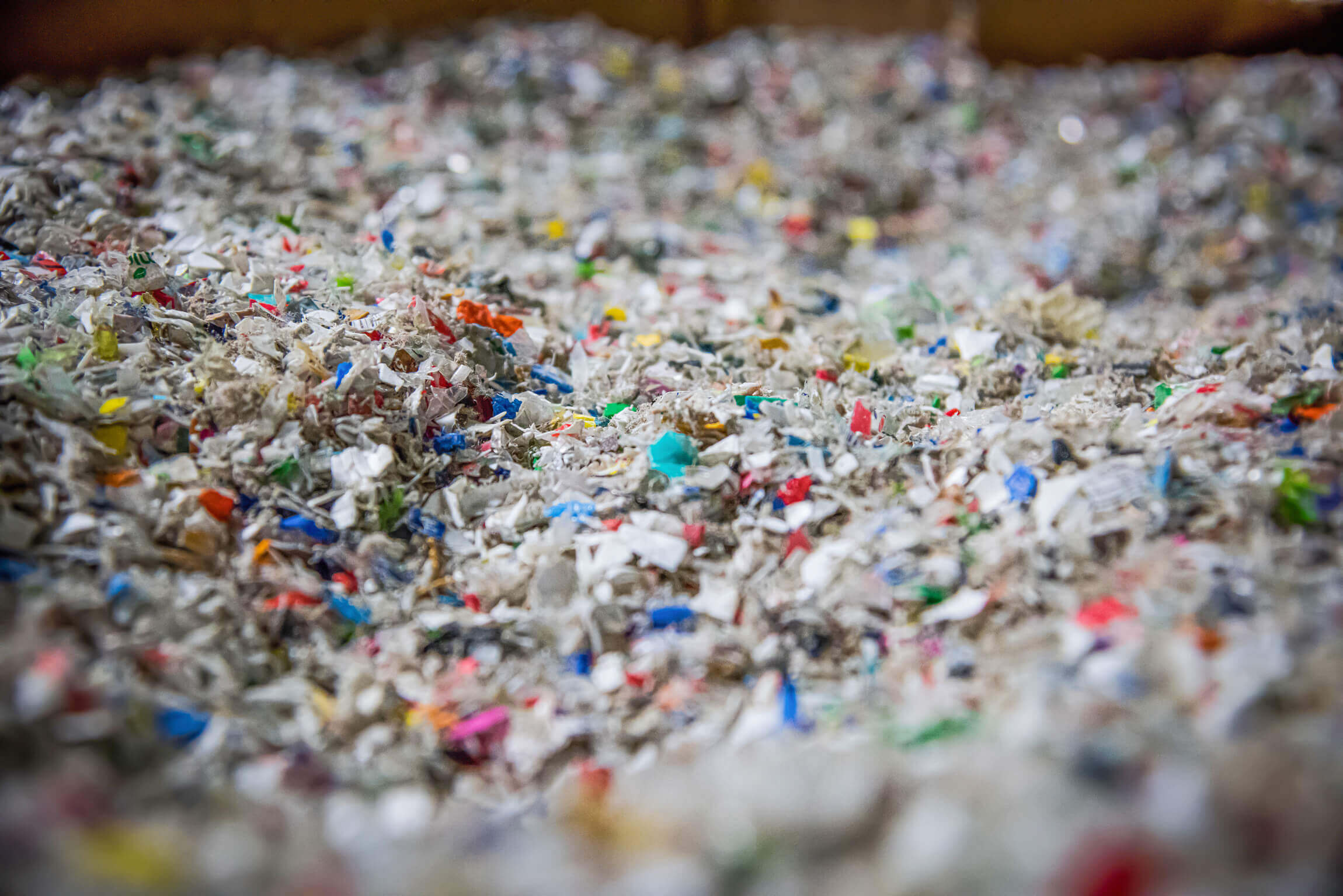
Post-consumer plastic waste shredding for recycling
Information about shredders for size reduction and processing of post-consumer waste material streams
New products made from recycled plastics are very much in vogue. And, in keeping with the circular economy, they are here to stay. Instead of having to produce new plastic with a high expenditure of energy and resources, one uses materials that are already in circulation. At the same time, we prevent further littering of our planet when plastics are not recycled but, in the worst case, disappear uncontrollably in our oceans or in landfills in our soil – and take decades or even centuries to completely dissolve.
The technology for recycling plastics after use | consumption, so-called post-consumer waste, has been around for many years – and is constantly evolving. To produce regranulate, waste must first be shredded before it can be cleaned, melted and further processed. This works best on a large scale with an industrial shredder – for example from WEIMA. We can draw on more than 40 years of application experience and are a proud partner of many post-consumer plastics recycling companies.
Shredding of PP flowerpots and post-consumer waste using 4 WEIMA Shredders at Aufderhaar Recycling
Take a behind-the-scenes look at Aufderhaar Kunststof Recycling from the Netherlands and their plastic recycling. Explore their upgraded production lines, featuring 4 powerful WEIMA shredders, that enable them to shred and recycle post-consumer waste and PP flowerpots.
Difference between post-consumer recycling (PCR) and post-industrial recycling (PIR).
The decisive factor is the origin. When residual materials used by end consumers, usually packaging waste is fed into the cycle for recycling, this is referred to as post-consumer recycling. After the material flows have been appropriately processed, post-consumer recyclates (PCR) are obtained. If, on the other hand, the waste accumulates as residual materials during manufacturing processes (e.g. surpluses, punching residues, sprues, rejects) and is immediately reused for new production, this is referred to as post-industrial recycling. In this way, companies try to reduce the amount of waste they have to dispose of to zero (zero waste approach) and avoid wasting valuable raw materials.
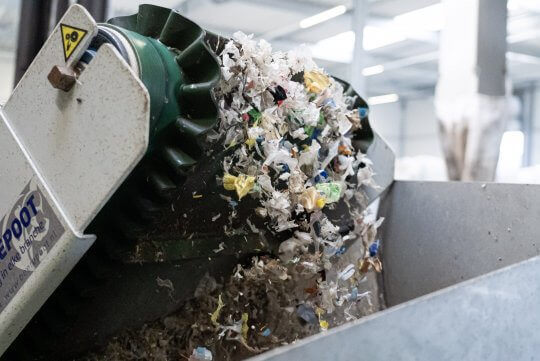
Did you know?
In 2018, United States landfills received 27 million tons of plastic products nationwide.
Practical examples and references: Post-consumer plastics recycling with WEIMA
WEIMA delivers over 1,000 machines per year. Many of them are used for the processing of post-consumer and post-industrial plastic waste. You can find an excerpt of current reference projects here:
Veolia Aufderhaar Plastics Recycling, Netherlands
CeDo Recycling, Netherlands
Stiphout Plastics, Netherlands
Remondis Sweden, Sweden
Request the right shredder for post-consumer recycling
Request a quote
What does post-consumer waste consist of?
According to the Environmental Protection Agency (EPA), plastics are found in all categories of MSW. However, the award for the category with the most tonnage of plastic found in MSW goes to the containers and packaging category. In 2018, plastic packaging in MSW weighed in at over 14.5 million tons!
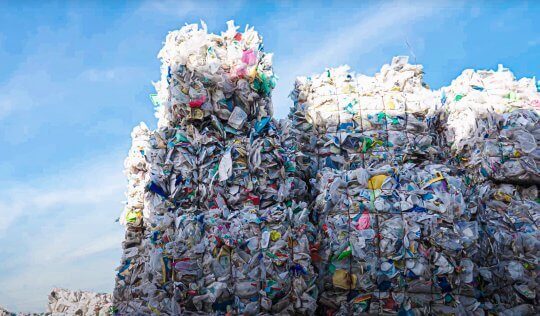
Challenges in shredding post-consumer plastic waste
In order for recycled plastic residues to become valuable secondary raw materials again, they must first be shredded to a flake size that is as homogeneous as possible after sorting by type. However, not all waste streams can be easily processed further. It is not uncommon for unwanted foreign materials to be hidden in the compressed bales – or for the plastic to be of inferior quality. On the one hand, this may be because it is heavily contaminated. Or that it has a high residual moisture content. It also becomes difficult if materials are mixed together too much.
WEIMA offers solutions for all these problems: These include a particularly robust design (with wall thicknesses of up to 40 mm), special drive concepts and various wear protection options.
Where are post-consumer recycled plastics (recyclates and regranulates) used? Product examples
Products and goods that are made either entirely or even in part from recycled plastics are now ubiquitous in our society. And because it appears to be "only" regranulate, this does not mean that downcycling necessarily takes place. Most of the times, regranulate is used to produce high-quality plastics. Many types of pipes, packaging, films, boxes, barrels and other containers, furniture, and even automotive parts have their material origin in thermoplastic residual materials.
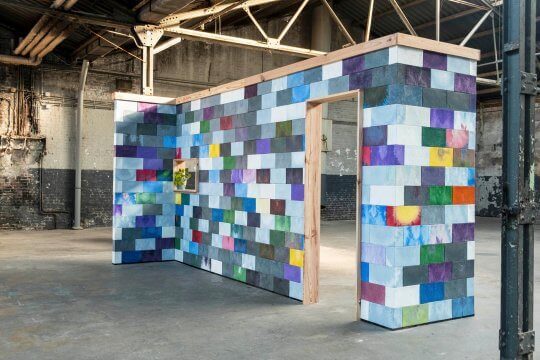
Post-Consumer Plastic Shredding with a WEIMA S7.20 lift-up Shredder @Stiphout Plastics, Netherlands
At Stiphout Plastics, a WEIMA S7.20 lift-up shredder processes post-consumer packaging waste. The output could be doubled with the new shredding system.
Precious Plastic x WEIMA
The Precious Plastic program, founded over a decade ago by Dave Hakkens in the Netherlands, is one of the most popular and vivid recycling programs in the world, with over 40,000 members and 400 workspaces. Precious Plastic informs and educates people in developing countries who want to start their own recycling business, while offering plans and know-how to build recycling technology | equipment themselves in the open source and open hardware model.
Stronger together.
These include injection molding machines, extruders and sheet presses – and of course shredders. Because every plastic that is to be recycled must first be shredded. For this purpose, Precious Plastic has been cooperating with WEIMA for some time. WEIMA has developed a compact single-shaft shredder that mainly consists of standard parts and is easy and inexpensive to rebuild. For future projects, WEIMA has provided Precious Plastic with five shredders free of charge as a first step. A first presentation of the cooperation could be seen at the K 2022 trade fair in Düsseldorf.
Post-consumer waste shredding with a WEIMA W5.18 single-shaft shredder with hydraulic drive from Hägglunds Bosch Rexroth
PowerLine: Universal shredder with single-shaft technology for primary or secondary shredding
Performance that pays off. The PowerLine series takes on any form of waste, even contaminated materials. Ideal as a shredder in multi-stage plants: After sorting out materials not suitable for RDF, the pre-shredded material can be optimally processed in the secondary shredding stage. The shredder can be equipped with a hydraulic drive, direct drive or a power belt drive.
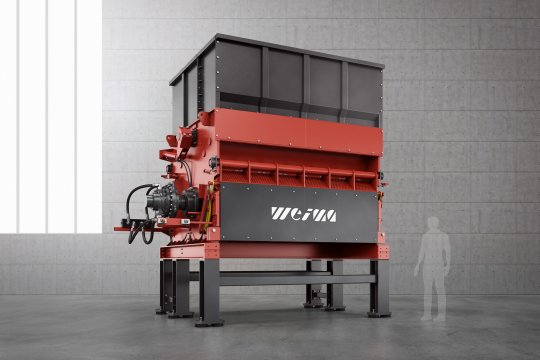
Shredding of post-consumer hard plastics (rigid plastics)
Rigid Plastics Rigid plastics are so-called non-packaging plastics produced by various thermoforming processes. They include products such as buckets, watering cans, flowerpots, pasta strainers, garden furniture and laundry baskets, which are used in private households. But other industries also use hard plastics such as plastic pallets, trash containers, waste garbage cans and pipes.
All too often, discarded plastics mistakenly end up in the garbage can. It is not uncommon for them to be incinerated to generate energy. In this way, they lose their recycling potential. The better solution is the recycling of post-consumer and industrial rigid plastics. The first step towards sustainable processing is shredding with WEIMA shredders into high-quality recyclate – the basis for all products made from recycled plastics.
W5 series: Powerful shredder with practical inspection flap
The ideal shredders for plastics of all kinds in large volumes. With the W5.18-22 series, you can shred everything from large-volume objects to tear-resistant fibers and films. With spacious inspection flap for easy maintenance access and compact swing-arm pusher/ram for an optimized shredding process.
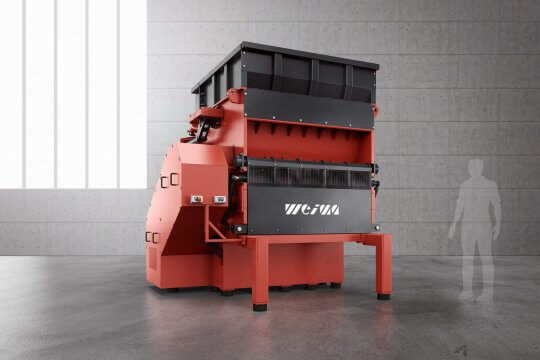
WKS 1800 Single-shaft shredder
WLK Jumbo/Super Jumbo Series: Robust endurance runners for extreme throughputs
The shredders of the WLK Jumbo/Super Jumbo series are designed for extreme tasks. The machines have been setting standards for years in terms of stability, functionality, throughput and availability. A variety of different sizes and options guarantee customer-oriented solutions for almost all applications. Due to the extremely robust design, the series offers almost unlimited application possibilities for the shredding of recyclable materials. More than 80 different options are available for customized individual solutions and applications.
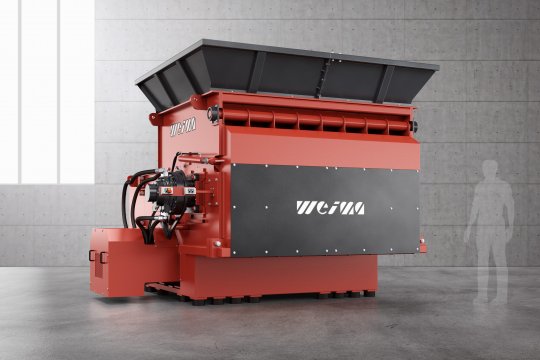
Request the right shredder for post-consumer recycling
Request a quote
WEIMA C.200 dewatering press – for fines and rejects after washing/cleaning
In the course of the recycling process, post-consumer plastic waste is first shredded and then washed in the next step. This inevitably produces fine fractions that cannot be processed further and have to be disposed of at high cost. In addition, a lot of liquid still adheres to this fine fraction, which increases the weight and is ultimately paid for as well. The solution: separate plastic from liquid and save money.
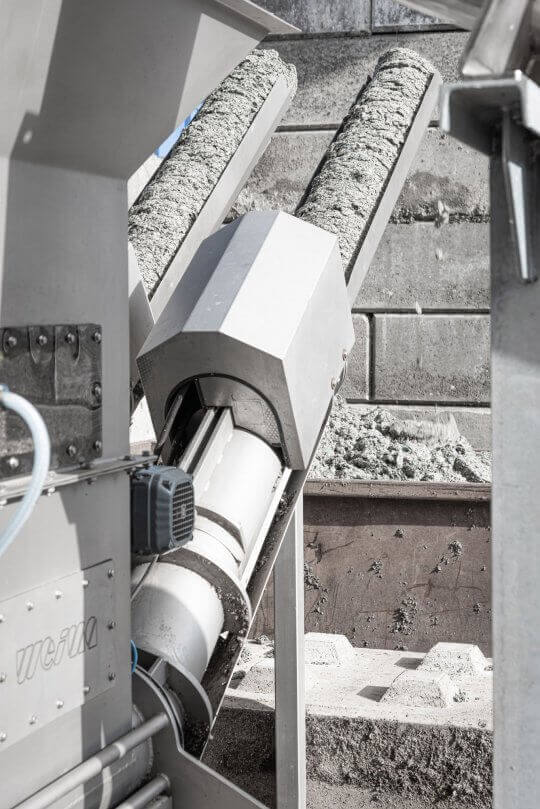
Dewater wet plastic residues and reduce disposal costs with WEIMA C.200 Duo press
With the WEIMA C.200 you dewater and compress wet plastic residues in only one work step. By the help of precise level sensors in the feed hopper, the press can be used automatically. The machine switches on automatically when a certain filling level is reached in the hopper. To prevent wear on machine components, the machine also switches automatically to standby as soon as the filling level falls below a certain level.
The two independent hydraulic press cylinders pipes of the C.200 Duo can be filled one after the other with the help of a movable apex plate in the hopper. To reduce downtimes, both pressing chambers can be filled alternately. In the event of a malfunction, the machine automatically switches to the available press channel.
This combo is only available at WEIMA
Heavy duty machine designs
for long service life
Easy maintenance
for minimal down times
Various drive options
for maximum throughput
Fast service and support
for highest customer satisfaction
Everything from one source
machines, conveying technology, metal detection, support, spare and wear parts for customized solutions
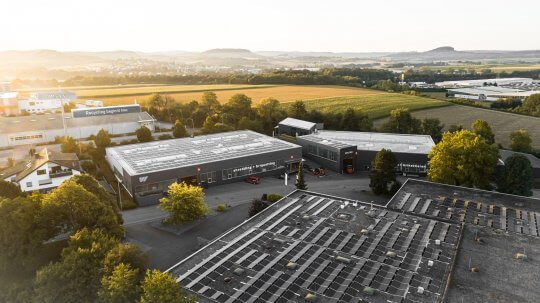
WEIMA headquarters Ilsfeld (Germany)
Convince yourself
The WEIMA showroom is equipped with shredding and compacting machines of all sizes and technologies. This allows us to simulate your application as realistically as possible. You have the possibility to send us your material or to visit us directly in Ilsfeld. From our gallery you have the best view directly into the cutting room. This allows you to observe the shredding process live.
Request appointment now
Alternatively, you can send us material for testing. Click here for the form.
